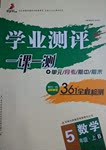题目内容
On the third floor there are two rooms, _____ is used as a meeting-room.
A.one of them B. the larger of which C. and a larger of them D. the largest one of which
B

 学业测评一课一测系列答案
学业测评一课一测系列答案Being organized is an important skill for school and life.When you're well organized, you can stay focused, instead of spending time hunting things down.__【小题1】__For schoolwork, it means having one notebook or place where you store all your assignments, so you know what you have to do and when.Keeping labeled folders(贴有标签的文件夹) for handouts(课堂讲义)and keeping all your schoolwork neat and in a specific place—these are the main parts of organization.
For home stuff, being organized means having a place to put your things and putting them back as you go.__【小题2】__It means keeping your schoolbag, your shoes, and your clean underwear in the same places so you always know where to find them.
Planning is part of being organized, too.__【小题3】_ Calendars, lists, and schedules can help you plan.You can buy or draw a calendar and keep it near your workplace.Making a schedule or “todo” list for yourself is a good idea.Looking at your list helps you keep track of what you need to do.__【小题4】__ Check off things when you've done them.Use your list to help you decide which thing is most important to work on first.
__【小题5】__But once you're organized, it feels great.The less time you spend hunting around for things or panicking about homework, the more time you have for better things, like reading a good book or playing.
| A.Planning means deciding what you will do and when you will do it. |
| B.First, you should get your schoolwork organized. |
| C.Add new thi Check off things when you've done them. |
| D.You will benefit a lot from a good habit. |
F.It takes some extra efforts to organize yourself and your stuff.
G.It means hanging your coat up instead of dropping it on the floor or throwing it on a chair.
Being organized is an important skill for school and life.When you're well organized, you can stay focused, instead of spending time hunting things down. __66__ For schoolwork, it means having one notebook or place where you store all your assignments, so you know what you have to do and when.Keeping labeled folders(贴有标签的文件夹) for handouts(课堂讲义)and keeping all your schoolwork neat and in a specific place—these are the main parts of organization.
For home stuff, being organized means having a place to put your things and putting them back as you go. __67__ It means keeping your schoolbag, your shoes, and your clean underwear in the same places so you always know where to find them.
Planning is part of being organized, too. __68_ Calendars, lists, and schedules can help you plan.You can buy or draw a calendar and keep it near your workplace.Making a schedule or “todo” list for yourself is a good idea.Looking at your list helps you keep track of what you need to do. __69__ Check off things when you've done them.Use your list to help you decide which thing is most important to work on first.
__70__ But once you're organized, it feels great.The less time you spend hunting around for things or panicking about homework, the more time you have for better things, like reading a good book or playing.
|
A.Planning means deciding what you will do and when you will do it. |
|
B.First, you should get your schoolwork organized. |
|
C.Add new thi Check off things when you've done them. |
|
D.You will benefit a lot from a good habit. |
E.What does it mean to be organized?
F.It takes some extra efforts to organize yourself and your stuff.
G.It means hanging your coat up instead of dropping it on the floor or throwing it on a chair.